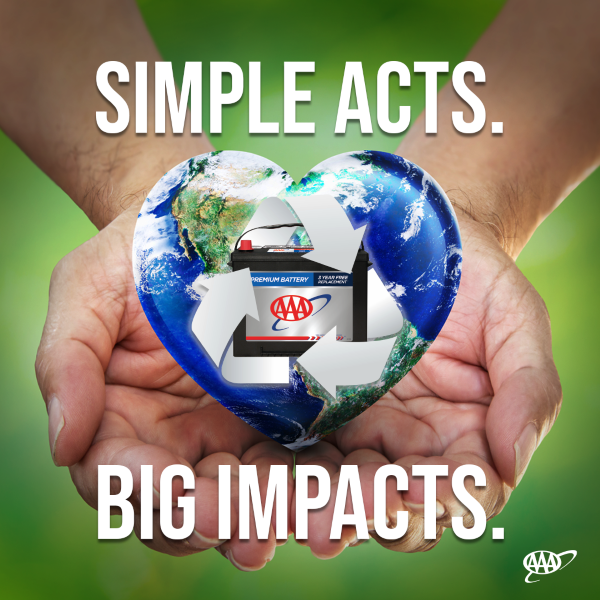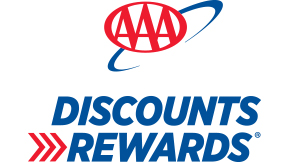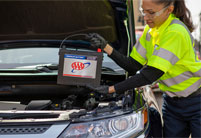AAA Great Battery Roundup
AAA Great Battery Roundup

Held every year in conjunction with Earth Day, April 22, the AAA Great Battery Roundup is designed to encourage motorists to take old automotive or marine lead-acid batteries to a local collection point where they can be safely recycled and formed into new batteries. AAA Western and Central New York is pleased to participate with a convenient program.
To help with the recycling effort, AAA Western and Central New York has established multiple battery collection points. AAA also will donate a portion of recycling proceeds to various environmental groups and other charities.
Motorists can take part in AAA Western and Central New York’s free lead-based battery recycling – any brand or type of lead-acid or AGM batteries will be accepted, that includes car, boat and RV batteries, but lithium batteries are not eligible. Dropoff hours are Wednesday, April 21 through Saturday, April 24. Weekday drop off hours, Wednesday through Friday, are 8:00 a.m. to 5:00 p.m., and Saturday hours are 8:00 a.m. to 1:00 p.m.
Buffalo:
- AAA Western New York Fleet Operations, 505 Duke Rd., Suite 500, Cheektowaga
- AAA Car Care Plus, 8120 Main St., Clarence
- Bellreng’s Towing and Automotive, 2131 Eggert Rd., Amherst
- Schultz Auto and Truck Repair, 5085 Southwestern Blvd., Hamburg
- Transit Auto & Detail, 2021 Transit Rd., Elma
Rochester:
- Griff’s Auto Service, 55 Cedarfield Commons, Rochester
- Action Towing, 275 Marketplace, Rochester
Syracuse:
- AAA Central New York Fleet Operations, 6601 Towpath Rd., East Syracuse
- Chandler Automotive, 6745 Rt-31, Cicero
Ithaca:
- Charlie’s Towing & Repair, 1941 Elmira Rd., Newfield
Auburn:
- Harry’s Tire, 142 Grant Ave., Auburn
Watertown:
- Precision Towing & Auto Worx, 342 Factory St., Watertown
Canton:
- Johnson Towing & Auto Repair, 6385 US Highway 11, Canton
Each year, approximately 97 percent of vehicle batteries are recycled. However, the remaining 3 percent add up to millions of pounds of lead and gallons of sulfuric acid. These can be discharged into the environment, creating health and safety hazards for humans and animals, as well as a potential fire hazard.
Did you know? Batteries are hazardous.
- Lead-acid batteries are considered hazardous material. Anyone handling a battery should wear protective eyewear and gloves. Proper handling prevents injuries. Because they can leak and emit hydrogen gas, batteries should not be exposed to an open flame.
- If improperly stored, a battery may leak, causing sulfuric acid burns and even explosions. Dumping an old battery can also hurt your pocketbook. Many states hand out tough fines and jail time for discarding lead-acid batteries anywhere other than an authorized collection or recycling center.
Batteries are a recycling success story.
- An automotive battery contains about 21 pounds of lead, three pounds of plastic and one gallon of sulfuric acid. When a spent battery is recycled, lead is re-smelted into new battery plates, acid is neutralized and reclaimed and plastic is used to make new battery cases.
- The lead-acid battery industry was an early innovator of “closed loop” recycling and remains a leader in this efficient, economical process. This process reclaims materials from spent batteries and uses them in the production of new units.
- Lead costs are on the rise, so recycling spent batteries not only protects the environment but also reclaims valuable lead and plastic for manufacturing, saving energy and money on raw materials.












